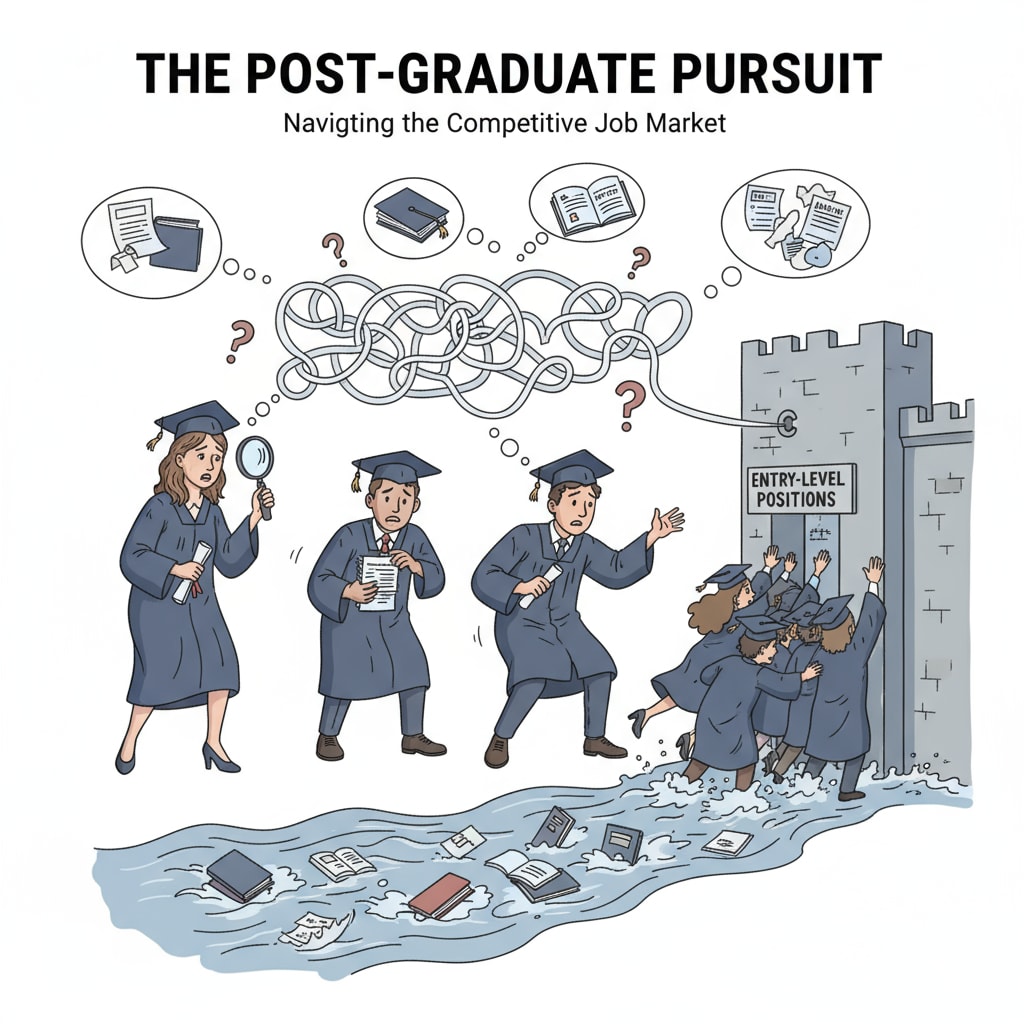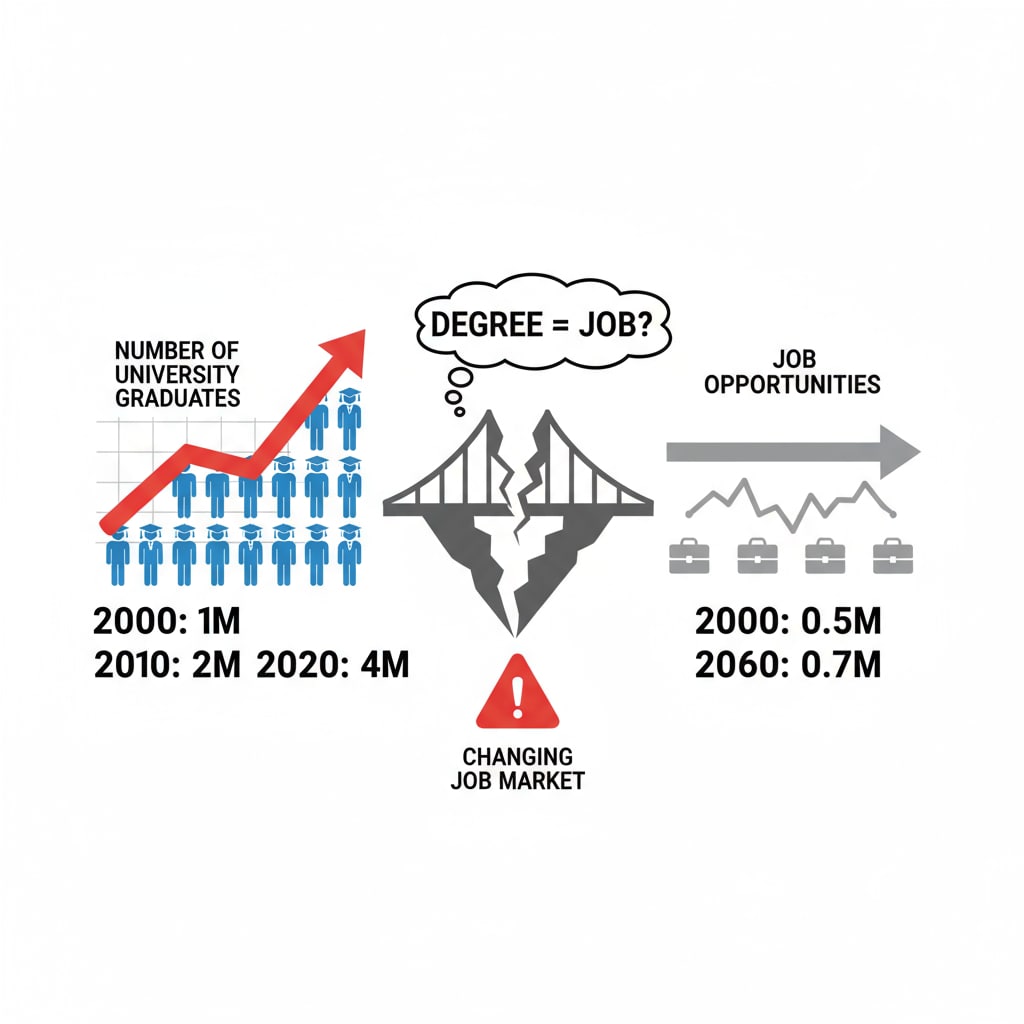In today’s dynamic job market, the traditional perception of university degrees as a surefire ticket to career success is being challenged. The relationship between university degrees, job market demands, and career development has undergone a significant transformation. As we witness instances of master’s degree holders working in fast-food joints, it’s crucial to reexamine the true value and returns of university education.

This phenomenon also raises important questions about how K12 education should prepare students for the future job market.
The Changing Landscape of University Degrees and the Job Market
For decades, obtaining a university degree was considered a milestone that would open doors to a wide range of well-paying and prestigious careers. However, the job market has become more competitive and complex. According to Bureau of Labor Statistics data, many industries are now looking for a combination of skills and experience rather than just academic qualifications. For example, in the technology sector, practical coding skills and hands-on experience are often more valued than a theoretical computer science degree. As a result, graduates are finding it harder to secure jobs that align with their degree expectations.

The Impact on Career Development
This shift in the job market has a profound impact on career development. A university degree may no longer guarantee a linear path to career advancement. Instead, individuals need to be adaptable and continuously learn new skills. Those who can demonstrate practical skills, problem-solving abilities, and a willingness to learn are more likely to succeed in their careers. In addition, networking and building professional relationships have become essential for career growth. For instance, attending industry events and joining professional organizations can help graduates gain valuable insights and access to job opportunities that may not be available through traditional job searches.
So, what does this mean for K12 education? It’s clear that the focus needs to shift from rote learning to developing practical skills and critical thinking. K12 institutions should incorporate more project-based learning, internships, and real-world experiences into the curriculum. By doing so, students will be better prepared to enter the job market with the skills and knowledge they need to succeed. Moreover, promoting a culture of lifelong learning from an early age will ensure that students are able to adapt to the changing demands of the job market throughout their careers.
Readability guidance: The article uses short paragraphs to convey key points clearly. Each H2 section presents a distinct aspect of the topic, with relevant examples and explanations. The use of transition words like “however,” “for example,” and “in addition” helps to create a smooth flow. Lists are used where appropriate to organize information, and the passive语态 is kept to a minimum to maintain an active and engaging tone.


